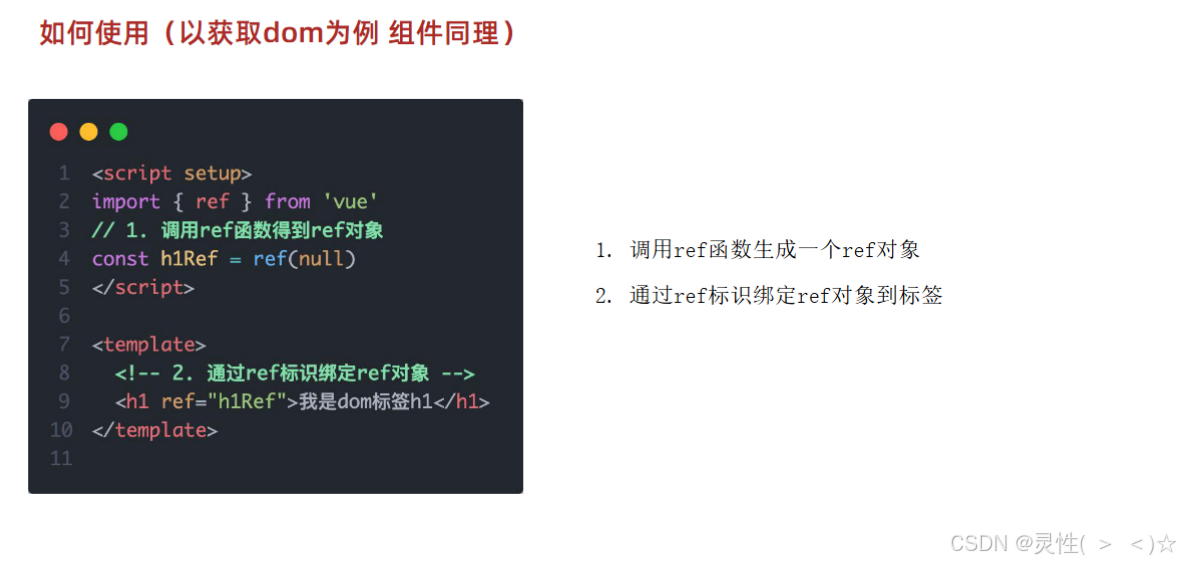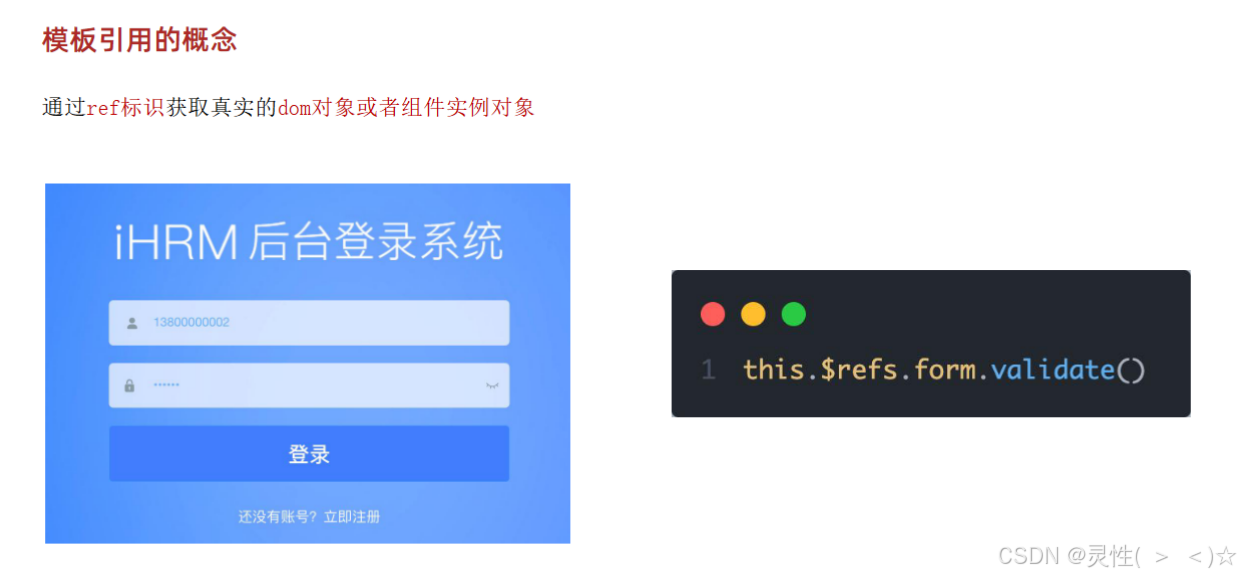Vue3学习-day4
父子通信
父传子

App.vue
<script setup>
// 局部组件(直接导入就能用,不用注册)
import sonFirst from './components/son-First.vue'
// 父传子
// 1. 给子组件,添加属性的方式传值
// 2. 在子组件,通过 props 接收
import {ref} from 'vue'
const sum = ref(200) // 响应式值的传递
const getmore = () => {
sum.value++
}
</script>
<template>
<div>
<h3>
父组件 {{ sum }}
<button @click="getmore">+1</button>
</h3>
<!-- 给子组件以添加属性的方式传值 -->
<son-First fruit="苹果" :sum="sum"></son-First>
</div>
</template>
son-First.vue
<script setup>
// 注意:由于写了 setup,所以无法直接配置 props 选项
// 因此,此处需要借助于“编译器宏”函数接收子组件传递的值
const props = defineProps({
fruit: String,
sum: Number
})
console.log(props.fruit)
console.log(props.sum)
// 子组件
// import son from './components/son.vue'
// 父传子
// 1. 给子组件,添加属性的方式传值
// 2. 在子组件,通过 props 接收
</script>
<template>
<!-- 对于 props 传递过来的数据,模板中可以直接使用 -->
<div class="son">子组件 - {{ fruit }}+ {{ sum }}</div>
</template>
<style scoped>S
.son{
border: 2px solid red;
padding: 25px;
}
</style>
defineProps原理

子传父

App.vue
<script setup>
// 局部组件(直接导入就能用,不用注册)
import sonFirst from './components/son-First.vue'
// 父传子
// 1. 给子组件,添加属性的方式传值
// 2. 在子组件,通过 props 接收
// 子传父
// 1. 在子组件中,emit 触发事件 (编译器宏获取)
// 2. 在父组件,通过 @ 监听
import {ref} from 'vue'
const sum = ref(200) // 响应式值的传递
const getmore = () => {
sum.value++
}
const changefn = (newsum) => {
sum.value = newsum
}
</script>
<template>
<div>
<h3>
父组件 {{ sum }}
<button @click="getmore">+1</button>
</h3>
<!-- 给子组件以添加属性的方式传值 -->
<son-First
fruit="苹果"
:sum="sum"
@changenum="changefn"></son-First>
</div>
</template>
son-First.vue
<script setup>
// 注意:由于写了 setup,所以无法直接配置 props 选项
// 因此,此处需要借助于“编译器宏”函数接收子组件传递的值
const props = defineProps({
fruit: String,
sum: Number
})
console.log(props.fruit)
console.log(props.sum)
// 子组件
// import son from './components/son.vue'
// 父传子
// 1. 给子组件,添加属性的方式传值
// 2. 在子组件,通过 props 接收
// 子传父
// 1. 在子组件中,emit 触发事件 (编译器宏获取)
// 2. 在父组件,通过 @ 监听
const emit = defineEmits(['changenum'])
const subnum = () => {
// 需要 emit 触发事件
emit('changenum', 5)
}
</script>
<template>
<!-- 对于 props 传递过来的数据,模板中可以直接使用 -->
<div class="son">
子组件 - {{ fruit }}+ {{ sum }}
<button @click="subnum">-1</button>
</div>
</template>
<style scoped>S
.son{
border: 2px solid red;
padding: 25px;
}
</style>
总结

模板引用
模板引用的概念
如何使用(以dom为例) 
App.vue
<script setup>
import TextCom from '@/components/textCom.vue'
import {onMounted, ref} from 'vue'
// 模板引用(可以获取dom,也可以获取组件)
// 1. 调用ref函数,生成一个对象
// 2. 通过ref标识,进行绑定
// 3. 通过ref对象.value即可访问到绑定的元素(必需渲染完成后才能拿到)
const inp = ref(null)
// console.log(inp.value)
onMounted(() => {
// console.log(inp.value)
// inp.value.focus() // 聚焦
})
const clickFn = () => {
inp.value.focus()
}
// ----------------------------------------------
const textRef = ref(null)
const getCom = () => {
console.log(textRef.value)
}
</script>
<template>
<div>
<input ref="inp" type="text">
<button @click="clickFn">通过点击按钮聚焦</button>
<TextCom ref="textRef"></TextCom>
<button @click="getCom">获取组件</button>
</div>
</template>
<style scoped>
</style>
defineExpose()

textCom.vue
<script setup>
const count = 99999
const hello = () => {
console.log('你好啊,世界')
}
// defineExpose 编译宏,指定哪些属性和方法允许访问
defineExpose({
count,
hello
})
</script>
<template>
<div>
我是测试组件 - {{ count }}
</div>
</template>
App.vue
<script setup>
import TextCom from '@/components/textCom.vue'
import {onMounted, ref} from 'vue'
// 模板引用(可以获取dom,也可以获取组件)
// 1. 调用ref函数,生成一个对象
// 2. 通过ref标识,进行绑定
// 3. 通过ref对象.value即可访问到绑定的元素(必需渲染完成后才能拿到)
const inp = ref(null)
// console.log(inp.value)
onMounted(() => {
// console.log(inp.value)
// inp.value.focus() // 聚焦
})
const clickFn = () => {
inp.value.focus()
}
// ----------------------------------------------
const textRef = ref(null)
const getCom = () => {
console.log(textRef.value.count)
textRef.value.hello()
}
</script>
<template>
<div>
<input ref="inp" type="text">
<button @click="clickFn">通过点击按钮聚焦</button>
<TextCom ref="textRef"></TextCom>
<button @click="getCom">获取组件</button>
</div>
</template>
<style scoped>
</style>
总结

原文地址:https://blog.csdn.net/m0_67307574/article/details/145147793
免责声明:本站文章内容转载自网络资源,如侵犯了原著者的合法权益,可联系本站删除。更多内容请关注自学内容网(zxcms.com)!

